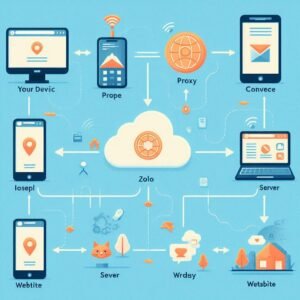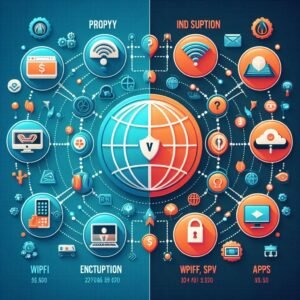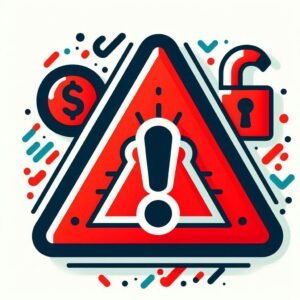VPN vs Proxy
Which One Truly Protects Your Online Anonymity?

Introduction
When it comes to online privacy, two common tools often enter the conversation—VPNs and Proxies. Both claim to mask your identity, but do they really deliver the same level of anonymity and security? Many people use these terms interchangeably, but the truth is they function very differently. Making the wrong choice could expose your personal data, browsing habits, or even your physical location.
In this in-depth guide, we’ll compare VPNs and proxies in detail. By the end, you’ll have a clear understanding of what each one does, their pros and cons, and ultimately, which one really keeps you safe and anonymous online.

What is a Proxy?
A proxy server acts as a middleman between you and the internet. Instead of connecting directly to a website, your request first goes through the proxy. The website then only sees the proxy’s IP address, not yours. At first glance, this seems like a neat trick for staying hidden—but here’s the catch: most proxies only disguise your IP address at a surface level.

Key Characteristics of Proxies:
-
They mask only your IP address but don’t encrypt your internet traffic.
-
They are often used to bypass region blocks, such as streaming content not available in your country.
-
Different types of proxies include HTTP proxies, SOCKS proxies, and transparent proxies.
The Downside:
Because proxies don’t encrypt data, your activity can still be tracked by ISPs (Internet Service Providers), government agencies, and hackers. In other words, proxies provide a form of pseudo-anonymity, not actual privacy.
What is a VPN?
A Virtual Private Network (VPN) goes several steps beyond what a proxy does. It also hides your IP address, but the real power lies in its ability to encrypt all your internet traffic.
When you use a VPN:
-
Your data travels through an encrypted tunnel, making it unreadable to outsiders.
-
Websites and platforms only see the VPN server’s IP address, while your real one remains hidden.
-
ISPs, hackers, and surveillance programs cannot easily monitor your activity.
Key Benefits of VPNs:
-
End-to-end encryption keeps your browsing activity invisible.
-
Works across all apps and services on your device, not just your browser.
-
Adds security when using public Wi-Fi or unsecured networks.
-
Some VPNs offer no-log policies, ensuring they don’t store your online activities.
This makes VPNs one of the most trusted tools for online privacy seekers.

Proxy vs VPN: A Direct Comparison
To truly decide which tool keeps you anonymous online, let’s compare them head to head.
| Feature | Proxy Server | VPN |
|---|---|---|
| IP Masking | Yes | Yes |
| Encryption | No | Yes (strong encryption) |
| Security on Public Wi-Fi | Weak protection | Strong protection |
| Application Coverage | Limited (mostly browsers) | All apps and services |
| Speed | Often faster, but less secure | Slightly slower but encrypted |
| Cost | Often free or cheap | Premium plans, free versions exist |
| Anonymity Level | Low | High |

When Should You Use a Proxy?
Despite its limitations, a proxy still has some valid use cases. You might consider a proxy if:
-
You just want to bypass geo-restrictions temporarily (like watching a video only available in another country).
-
You want a quick solution without downloading software.
-
Speed is more important to you than privacy (for example, basic YouTube access abroad).
However, you should never rely solely on a proxy for security or sensitive activities.
When Should You Use a VPN?
Use a VPN when you want true online anonymity and security, such as:
-
Using public Wi-Fi at an airport or coffee shop.
-
Bypassing censorship or surveillance in countries with restricted internet freedom.
-
Accessing blocked websites for work, research, or communication.
-
Protecting your personal data from hackers or malicious actors.
-
Ensuring your ISP cannot track or sell your browsing activity.
In short, if privacy and safety matter to you, a VPN is the superior choice.

The Illusion of Free Services
Both proxies and VPNs are often available for free, but there’s a catch. Many free proxies (and even free VPNs) track and sell your data to make money. Some inject ads, throttle speeds, or even contain malware.
While proxies are commonly free, they rarely offer secure browsing. Free VPNs might sound appealing, but unless carefully chosen, they can undermine the very privacy they claim to protect. Always opt for a trusted provider with verified no-log policies.

Misconceptions Around VPNs and Proxies
-
“A proxy is just like a VPN.”
Not true—proxies don’t secure your traffic. -
“My browsing history is invisible with either.”
Wrong—a proxy won’t prevent ISPs from monitoring you. -
“Free VPNs are safe enough.”
Only if you completely trust the provider (which is rare). -
“Nobody needs encryption.”
In today’s hacking-filled world, encryption is essential.
Privacy vs Anonymity: The Fine Line
It’s important to understand that privacy and anonymity are related but different.
-
Privacy means your data is not visible to outsiders. (VPNs provide this through encryption).
-
Anonymity means your identity cannot be traced back to you. (VPNs give you much stronger anonymity than proxies).
If true anonymity is your goal, you should combine a good VPN with healthy browsing practices like avoiding suspicious websites, disabling location tracking, and using privacy-focused browsers.

The Final Verdict: Which Actually Keeps You Anonymous?
After breaking down the details, the conclusion is clear: VPNs are far more effective at keeping you anonymous and secure online than proxies. While proxies may hide your IP address for quick tasks, they leave your actual data exposed. VPNs, on the other hand, encrypt your connections, protect you on public Wi-Fi, and provide consistent anonymity across your entire device.
If your primary goal is just streaming or bypassing trivial restrictions, a proxy may suffice. But if you genuinely want peace of mind, protection from hackers, or freedom from surveillance, a VPN is non-negotiable.

Pingback: VPN बनाम Proxy असली गुमनामी ऑनलाइन किससे मिलती है